Tracing the journey of our relationship with the sea, through the ages and around the world.

With the constant innovation of diving gear enabling us to go deeper and longer underwater, it’s easy to forget that diving began as the simple act of holding your breath and kicking your legs. Indeed, with the advent of modern underwater breathing apparatus, this most primitive form of diving is now typically differentiated from its more mainstream cousin with the moniker “freediving”. But breath-hold diving in humans began more than 8,000 years ago, evolving through the centuries to its present-day status. And now, freediving is constantly taking on new extremes that have risen in popularity especially over the past three decades.
ANCIENT TIMES
The first recorded evidence of freediving humans can be traced back more than 7,000 years to the Chinchorro1, an ancient people who lived along the coast of the Atacama Desert in what is present-day northern Chile and southern Peru. In a study of Chinchorro mummies, archaeologists discovered that the bones inside their ears had started to grow across the ear canal’s opening to protect the eardrums from recurrent exposure to water. It was clearly exostosis, a condition that afflicts people whose heads have been frequently dunked underwater. Exostosis is a common condition among people who surf, dive and kayak. The Chinchorro were people who dived for seafood. Shell midden fossils and bone chemistry tests on the mummies have proven that their diet consisted of 90 percent seafood. Besides the Chinchorro in South America, seashell fossils found at the coast of the Baltic Sea also revealed ancient people living approximately 10,000 years ago who dived for clams.
EGYPT, GREECE, MESOPOTAMIA & PERSIA
Denne historien er fra Issue 02 - 2019-utgaven av Asian Diver.
Start din 7-dagers gratis prøveperiode på Magzter GOLD for å få tilgang til tusenvis av utvalgte premiumhistorier og 9000+ magasiner og aviser.
Allerede abonnent ? Logg på
Denne historien er fra Issue 02 - 2019-utgaven av Asian Diver.
Start din 7-dagers gratis prøveperiode på Magzter GOLD for å få tilgang til tusenvis av utvalgte premiumhistorier og 9000+ magasiner og aviser.
Allerede abonnent? Logg på
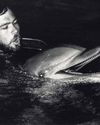
The Sea Specialist: An Interview With Bret Gilliam
Most people learn to crawl before they walk, but there is a man who learned to swim before taking his first steps. Diver, entrepreneur, writer, athlete, maritime specialist – Bret Gilliam is the complete package. Just add water.
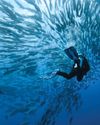
The Best Of Diving In Southeast Asia: Explore The Amazon Of The Seas
Southeast Asia encompasses the world’s most biodiverse reefs and some of the best diving anywhere on the planet. From the tiniest and rarest critters to huge fish schools and the biggest pelagics, the region has it all, and there’s something to suit divers of any level.
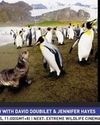
Below With David Doubilet & Jennifer Hayes
Best known for their work with National Geographic, David Doubilet and Jennifer Hayes came together to discuss their work with the youth, and, as Jennifer put it, “submerging with the emerging talent”.
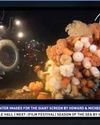
Underwater Images For The Giant Screen
Howard and Michele Hall are best known for their success in underwater IMAX filmmaking.
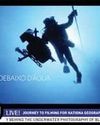
Journey To Filming For National Geographic Wild Brazil
Cristian is an acclaimed and highly versatile Brazilian wildlife filmmaker who works both underwater and topside.

Breaking The Barrier: The World's Deepest Dive
David Strike shared a brilliant presentation about the history of deep diving and how Lt. George Wookey achieved the world’s deepest dive in 1956 using a surface-supplied rebreather.
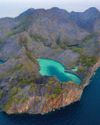
Dive the Golden Land
The Best of Diving In Southeast Asia

OFFICIAL LAUNCH OF BLUE HOPE
Top Session of the Week (14,319 (Views) / 42,831 (Reach)
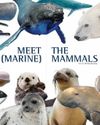
MEET THE (MARINE) MAMMALS
MEET THE (MARINE) MAMMALS

Fashion Faux Pas
What can be done to mitigate the impact of the garment industry on our oceans?